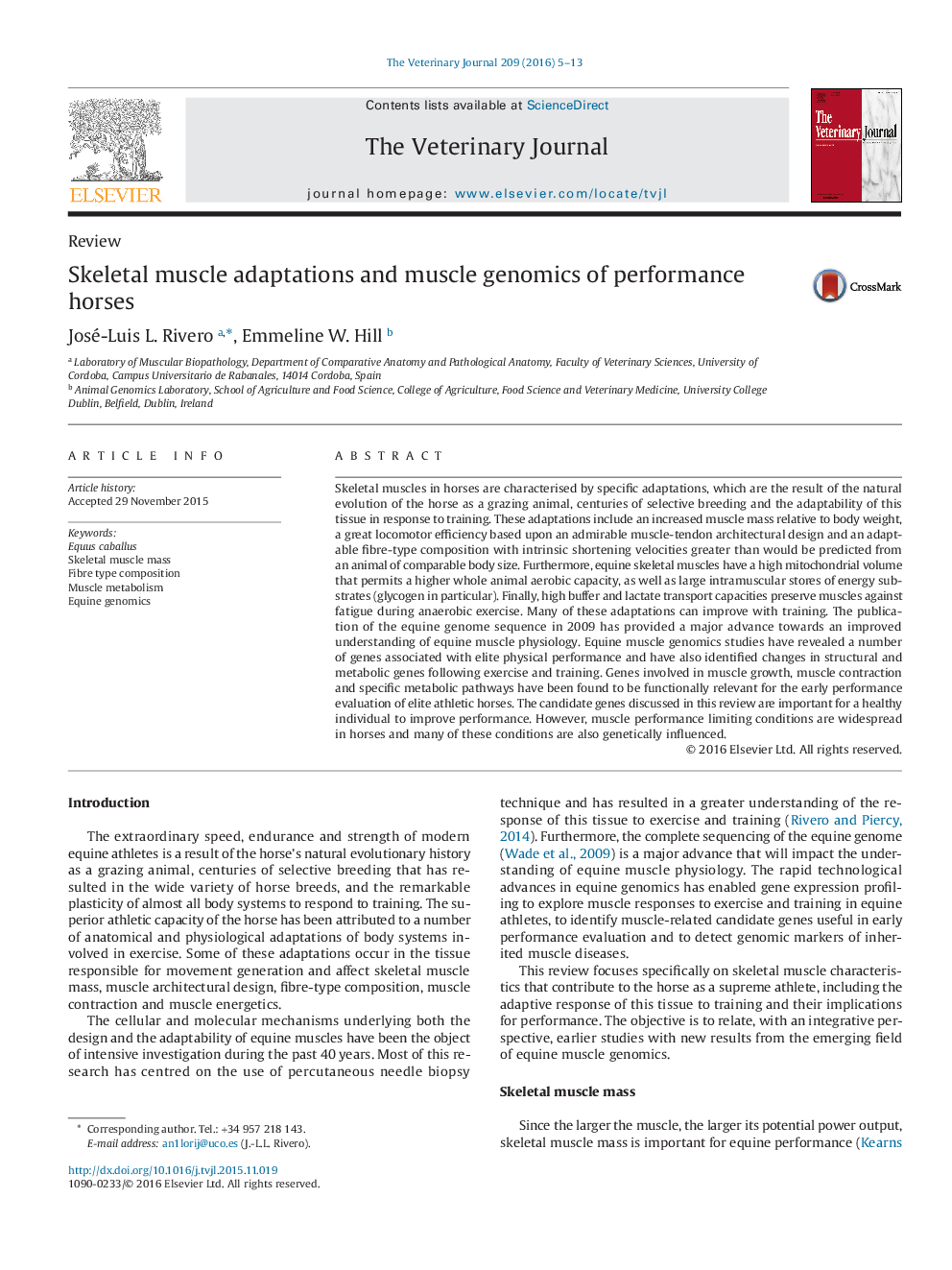| کد مقاله | کد نشریه | سال انتشار | مقاله انگلیسی | نسخه تمام متن |
|---|---|---|---|---|
| 5797317 | 1555234 | 2016 | 9 صفحه PDF | دانلود رایگان |
- Review of studies and recent data on muscle adaptations in equine athletes.
- Relevant adaptations affect muscle mass, architecture, contraction and metabolism.
- These adaptations are the sum of the evolution, breeding and training of the horse.
- Genomics represents a major advance in understanding equine muscle physiology.
- Specific muscle-related genes are useful in early evaluation of performance horses.
Skeletal muscles in horses are characterised by specific adaptations, which are the result of the natural evolution of the horse as a grazing animal, centuries of selective breeding and the adaptability of this tissue in response to training. These adaptations include an increased muscle mass relative to body weight, a great locomotor efficiency based upon an admirable muscle-tendon architectural design and an adaptable fibre-type composition with intrinsic shortening velocities greater than would be predicted from an animal of comparable body size. Furthermore, equine skeletal muscles have a high mitochondrial volume that permits a higher whole animal aerobic capacity, as well as large intramuscular stores of energy substrates (glycogen in particular). Finally, high buffer and lactate transport capacities preserve muscles against fatigue during anaerobic exercise. Many of these adaptations can improve with training. The publication of the equine genome sequence in 2009 has provided a major advance towards an improved understanding of equine muscle physiology. Equine muscle genomics studies have revealed a number of genes associated with elite physical performance and have also identified changes in structural and metabolic genes following exercise and training. Genes involved in muscle growth, muscle contraction and specific metabolic pathways have been found to be functionally relevant for the early performance evaluation of elite athletic horses. The candidate genes discussed in this review are important for a healthy individual to improve performance. However, muscle performance limiting conditions are widespread in horses and many of these conditions are also genetically influenced.
Journal: The Veterinary Journal - Volume 209, March 2016, Pages 5-13
